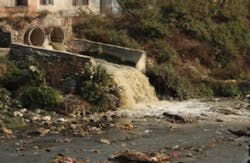ALEXANDRIA, Va. — The Water Environment Research Foundation (WERF) was recently awarded a $2.2 million United States Environmental Protection Agency (EPA) Science to Achieve Results (STAR) grant to establish a National Research Center for Resource Recovery and Nutrient Management, according to a press release.
Through the Center, WERF intends to catalyze a paradigm shift in the water quality community whereby nutrients such as nitrogen and phosphorus are not regarded as wastes but rather valuable resources, continued the release, in hopes to provide communities with more cost-effective options to recover and reuse nutrients to significantly reduce the amount of nutrients entering water bodies.
WERF will be working with some of the top universities and partner non-profit organizations in the United States, reported the release, including: the University of California at Berkeley, Columbia University, the University of Michigan, Stanford University, The State University of New York at Buffalo, Washington State University and the University of Washington.
According to the release, highlights of these projects include: Demonstrating collection and use of a safe, effective and sustainable source of nutrients for agriculture through urine separation; demonstrations of a technological breakthrough that will allow utilities to meet regulatory goals for nitrogen reduction at a much lower cost, with less energy and with a smaller chemical footprint; evaluating the engineering feasibility, operational costs and environmental and social impacts of nutrient recovery technologies with a demonstration in at least one wastewater treatment facility, also known as water resource recovery facilities; development of new approaches to removing nutrients from urban runoff to facilitate use of that water; and conducting commercial-scale applications at agricultural facilities to generate energy and more desired bio-fertilizers in an economically feasible way.
The grant will also fund two additional projects, noted the release: One builds on the work conducted under the five projects above — evaluating the scalability of their work and the second adds agricultural performance data to an international database of best management practices to manage rain and snowmelt runoff.
Read the full release here.
